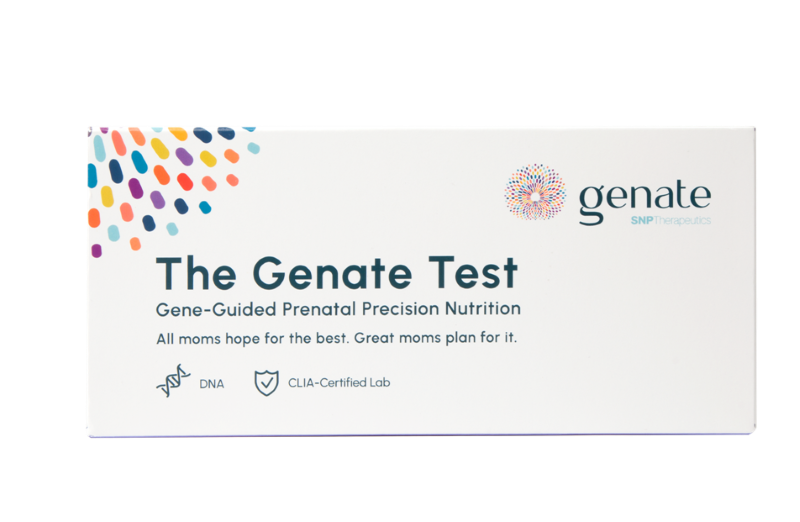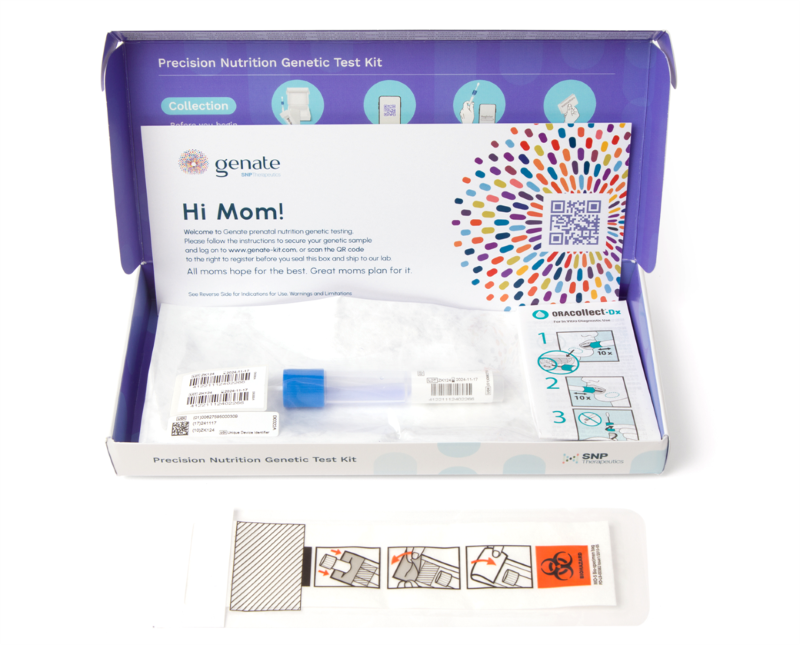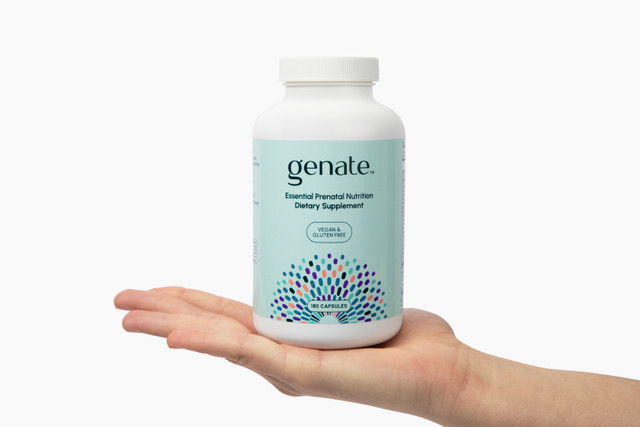
SNP Therapeutics Launches Genate, Linking Genetics to Prenatal Nutrition
“Let food be your medicine and medicine be your food.”
That’s the English translation of a quote attributed to Hippocrates, the ancient Greek physician who is considered the “father of medicine.”
Around 400 BC, his “Hippocratic oath” gained traction among healers to become a code of ethics that remains a guidepost of medical practice today.
It has also been a decades-long context for Steven Zeisel, M.D., Ph.D., an emeritus University of North Carolina at Chapel Hill pediatrician and research scientist who is widely acclaimed for his work in genetics and nutrition, including choline as a fundamental building block of human health.
Before retiring, Zeisel founded a company, SNP Therapeutics (SNPT), headquartered at the North Carolina Research Campus (NCRC) in Kannapolis, northeast of Charlotte.
SNPT brings the 2,400-year-old insights of Hippocrates to today’s scientific understandings: genetic differences make people metabolically unique. Just like the unique qualities of our fingerprints, we all process and absorb nutrients from food differently.
We've known for thousands of years that food exerts a powerful influence on our health. This brief YouTube documentary, for example, describes the horrible human toll caused by pellagra in the early 20th century, and the nutritional cure discovered by a physician scientist. But only in the past few decades have scientists started discovering the roles played by functional genes in nutrient metabolism and human development.
SNPT focuses on these genetic differences, called single nucleotide polymorphisms (SNPs, pronounced “snips”), that impact nutrient metabolism and can lead to negative health consequences.
Relying on Zeisel’s understanding of the ways genetic variations can interfere with key nutrient pathways, SNPT’s first product, called Genate, is a non-invasive genetic screening test for women who are pregnant, breastfeeding, or planning a pregnancy. The goal is to find and address genetic variants that could inhibit the absorption of key nutrients by mothers and how they deliver those nutrients to their developing baby.

Using Genate, an expectant mother can purchase a test kit, collect a saliva sample at home, and return it for processing. The SNPT precision nutrition approach employs an algorithm that evaluates 325 genetic variants in five nutrient pathways, determining if she has variants that can be addressed with nutritional supplements or diet changes.
SNPT partners with CLIA/CAP-certified lab Eremid Genomics Services, also headquartered at the NCRC, to process the test samples. The SNPT bioinformatics team calculates scores that identify each person’s degree of metabolic inefficiency, including one-carbon nutrients and the omega-3 fat DHA, which are critical for brain and nervous system development during pregnancy and the first two years of life.
“We have a registered dietitian on staff to help women build their prenatal nutrition plans based on the SNPs identified in their test,” said Jon Kleu, president and CEO of the company, which was initially funded with support from the North Carolina Biotechnology Center.
In 2012 NCBiotech funded some of Zeisel’s research with a $100,000 university grant supporting a postdoctoral researcher to develop Zeisel’s specialized nutritional products. The Biotech Center followed that in 2019 with an $80,000 Presidential Initiative Award, dispersed through the Economic Development Award program by the City of Kannapolis, to keep the company’s headquarters there.
Cara Everett, M.S., R.D.N., L.D.N., directs the company’s nutrigenetic counseling services. She and Zeisel explained the SNPT technology this way:
Some nutrients have a chemical structure that includes only one carbon atom, plus other elements such as hydrogen. And they can include something called a “methyl group,” a chemical component that can be “donated” to other molecules. And that’s important to SNPT’s technology.
These so-called one-carbon nutrients are involved in DNA synthesis and many biological processes that are critical for the proper development of a baby’s genetic material affecting the brain, spinal cord and other parts of the nervous system. One-carbon nutrients include vitamin B9 (folate), methionine and choline. And vitamin B12 plays a role in sparking the transfer of methyl groups, influencing the body’s ability to use one-carbon nutrients.

“Research shows that SNPs affecting one-carbon nutrient pathways are very common,” Everett said. “For instance, over 70% of women have at least one SNP that interferes with their body’s ability to make choline. This nutrient is crucial for fetal cognitive development, but many women are unaware that they need it during pregnancy or that their genes influence how their body processes it. We work with clients to create a genetically targeted food and supplement plan that provides the correct amount of choline and other nutrients for their baby’s development.”
The company also works with doctors and other healthcare providers who use the Genate test to help patients optimize their nutrition from preconception through pregnancy and breastfeeding. “We’ve found the test to be valuable for a variety of healthcare provider specialties when guiding their patients in maternal health planning,” said Kleu. “Our test focuses an entire section on these one-carbon nutrients which are difficult for women to get at the proper levels in their diets. And the challenge is compounded if they have genetic ‘spelling errors’ making it difficult for the baby to receive this critical nutrition.”
To complement the test, Genate is also introducing a line of prenatal nutrition supplements formulated from genetic research on the nutrients most important for overall fetal and cognitive development.
"The proper level of these nutrients is critical during pregnancy in developing the stem cells and neurons that form the brain properly and provide cognitive benefits that can be seen in school-aged children,” said Zeisel. “Many women have genetic challenges impacting how they metabolize nutrients needed by their developing babies. These mothers need to know they have these challenges, and the Genate prenatal genetic test can alert mothers and their healthcare providers to their special needs. We based the Genate Prenatal Nutrition line of products on our genetic research. It enables mothers to optimize their prenatal nutrition plans based on their individual genetic profile."
Kleu said the company is completing its third round of funding to support its ongoing growth plans. Strategic investors are very important for SNPT, he said, pointing to investments in two rounds by the large specialty nutrition company Balchem Corp., and by Kilyos Nutrition of Brazil, and Vaneeghen in Europe.
“Coddle Creek Capital of Charlotte has been a tremendous support by leading two of the three rounds of financing. VTC Ventures, Health Ramp Ventures, and a number of private equity investors have also supported the company. For a young company, we have a diverse cap table,” said Kleu.
SNPT is also developing a product portfolio of genetic tests and nutritional therapies to address male infertility, nonalcoholic fatty liver disease, and muscle wasting.
“We’re excited to see this launch of the Genate product line,” said Corie Curtis, executive director of the NCBiotech Greater Charlotte Office. “It’s great to see some of Dr. Zeisel’s amazing work finding traction beyond academia, into commercialization that can have a global impact.”
Zeisel, a pioneer in the convergence of genetics and nutrition, serves as an advisor to the National Institutes of Health on precision nutrition, a growing target of NIH research interest through the NIH Common Fund’s Nutrition for Precision Health, powered by the All of Us Research Program.
